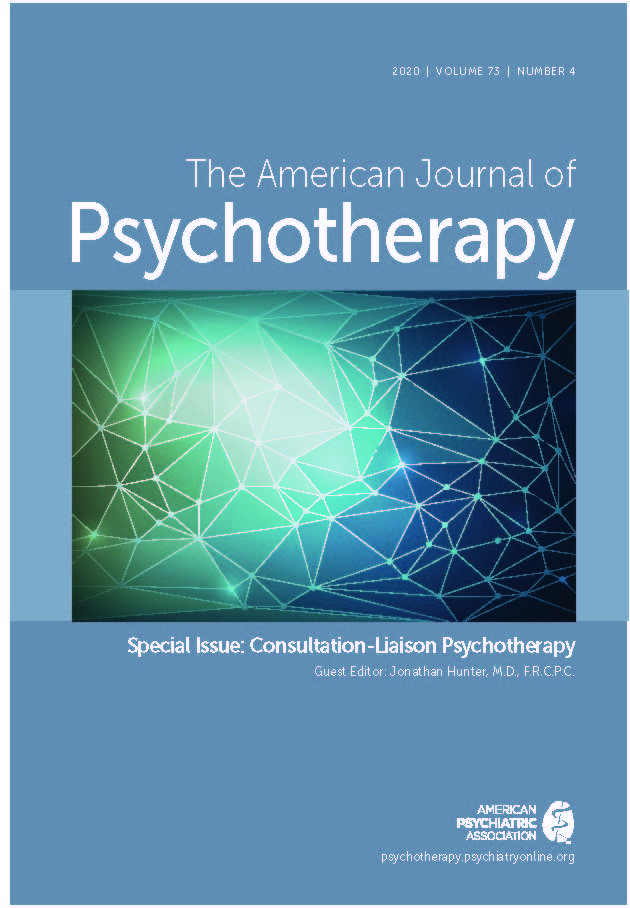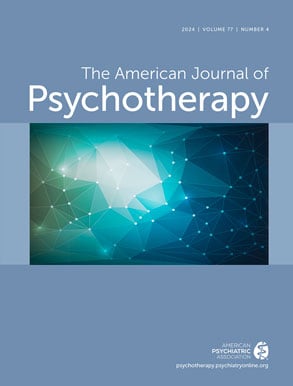As I write this editorial, I am sitting in my office in a general hospital, where my primary role is as a consultation-liaison (CL) psychiatrist. I see both inpatients and outpatients with medical and surgical illness and support the health care workers (HCWs) who treat them. In contrast to some of my CL colleagues who emphasize the neuropsychiatric aspects of this work, I self-identify as a psychotherapist because I feel that identity is at the center of my relationship with patients and caregivers. Now though, my work has been dramatically affected by COVID-19, with masks, physical distancing, and videoconferencing changing how I work. The virus has also increased demand for supporting multidisciplinary colleagues who are feeling heightened distress from their own fears of contagion and transmission, the strain of redeployment, and a sense that the pandemic may go on forever. This attitude is particularly felt in the intensive care unit (ICU), where a colleague and I attend rounds two mornings a week to stay in touch with medical, nursing, and allied health staff’s well-being and strain during this uncertain time. Under these conditions, what are the limits of psychotherapy? Where can it be applied? What populations will benefit from it?
In this special issue, we explore the question, How can psychotherapy be applied to people with medical or surgical illness and to the HCWs who support them? These are core activities in CL psychiatry and, importantly, not just in CL work. Every patient is increasingly more likely to have a mix of illnesses when they present for care. Today, the average medical patient seen in clinical settings is characterized by comorbidity, which has been declared the single most common chronic condition (
1). Importantly, comorbid conditions reduce quality of life, worsen functioning, and exacerbate psychological distress (
2). As the number of a patient’s medical conditions increases, so does the likelihood of having a psychiatric condition—from twice as high with one medical diagnosis to seven times as high with five medical diagnoses (
3). Given that medical diagnoses route patients to the nonpsychiatric parts of the hospital, these individuals’ needs can be easily categorized as falling outside the domain of psychotherapy. However, the essentially human dilemmas of these patients are optimally addressed with principles familiar to any psychotherapist, and these concepts, indeed, are critical in their care. Specifically, the formation of an alliance, with goals endorsed by the patient, leads to improvement in underlying medical conditions, such as diabetes or acute coronary syndrome (
4–
7). Psychotherapy can help medical patients with their suffering or despair, but beyond that, the utilization of psychotherapeutic principles can augment the care of their underlying medical conditions as well.
Rather than defining comorbid medical illnesses as outside of psychotherapy’s purview, in this issue we explore the psychotherapeutic care of individuals treated in family practice, the chemotherapy ward, and the hospice. The authors featured in this issue utilize explicit models of psychotherapy, many specifically formulated for populations with defined medical health challenges and tested empirically to determine optimal delivery and efficacy. These articles make the case that psychotherapeutic approaches can play a significant role in optimal patient care along the entire medical continuum, from treatment of conditions not always even deemed “real,” to terminal illnesses. Psychotherapy is definitely not limited to the outpatient consulting room.
Luyten and Fonagy (
8) focus on patients with persistent somatic complaints for which no clear physical cause can be found. People with this condition (defined in various ways, but consistent with a
DSM diagnosis of somatic symptom disorder) make up as much as 33% of primary care patients (
9) and utilize health care extensively; those in the top 5% of service use have multiple complex issues and incur greater costs, independent of the presence of anxiety and depression (
10,
11). Patients with somatic symptom disorder are also consistently rated as “difficult” by physicians, yet their suffering is more likely to be dismissed than addressed (
12–
14), not least because there has not been a therapeutic model demonstrated to reliably help. The use of a mentalizing-based approach to treatment of these individuals is a major contribution, precisely because it brings a psychotherapeutic lens to a problem previously defined as belonging mainly to physical medicine. Mentalization-based therapy removes the impasse created by disagreement around the goals of therapy and helps to resolve clinician-patient conflict. The principles of mentalizing and epistemic trust, along with an appreciation of the impact of early adversity on the therapeutic relationship, can also be usefully generalized to other clinical situations.
Leszcz (
15) focuses less on a specific clinical issue than on a technique—group psychotherapy for patients with medical illness—with breast cancer as the illustrative example. Here we find that multiple models—from empathetic support, or optimizing doctor-patient communication via interpersonal learning, through to confrontation with existential issues—can be utilized in many illness contexts, both in person and virtually, to achieve a wide variety of goals. Group psychotherapy is both effective and efficient, multiplying the therapeutic impact of one therapist to more than one individual. These qualities mean that “psychological care has moved from peripheral and adjunctive considerations to a position of centrality in integrative care” (
15). Dr. Leszcz, the current president of the American Group Psychotherapy Association, brings his career-long experience and expertise to this review.
Kredentser and Chochinov (
16) and Sethi et al. (
17) both describe models of individual psychotherapy for those at the end stages of life. Attention to physical symptom control is now widely recognized as crucial for these individuals, but similar attention to psychic distress is required. We, as psychotherapists, need these empirically derived models of care to guide us in helping, because during this phase of life the usual frame of psychotherapy is challenged by patients being bedridden or having intrusive physical complaints that limit the time or extent of their engagement. By focusing on the centrality of dignity (
16) or utilizing a model that combines elements of existential and attachment theories (
17), these two approaches demonstrate clear benefit to psychotherapeutic engagement with patients at the end of life.
Rosen et al. (
18) provide a timely review of the ways in which psychotherapeutic principles can be utilized in providing support to HCWs in the era of COVID-19. After giving a brief summary of reports to date on attempts to ameliorate the strain felt by HCWs in this unprecedented time, the authors then describe a team-based model of “resilience coaching,” with strong support from the administration of the hospital and the HCW consumers. Rather than reinvent ways of structuring interventions, they draw from principles familiar to all therapists, creatively applying the principles to hospital units as well as individuals. This approach brings coherence to optimizing the stress responsiveness of the hospital staff in units as varied as the ICU, labor and delivery, the emergency department, and general medicine, as staff are forced to adapt to the presence of COVID-19.
As I end my day, I reflect on the coaching session my colleague and I provided in the ICU, the attachment-based care for several patients in our oncology center, and the impromptu case discussion in which our CL team subtly highlighted issues of relational care and alliance building to be integrated into the medical team’s approach to a patient with unique challenges. This issue of the American Journal of Psychotherapy attests to the fact that there is a huge opportunity for using psychotherapy within the field of CL psychiatry with a wide variety of patients, and many opportunities for our colleagues who look to our interpersonal expertise to support patients in novel, threatening circumstances. Psychotherapy per se, and psychotherapeutic principles more generally, also play a significant role in addressing suffering in the wider reaches of health care, from family practice to palliative care. Given that rates of medical-psychiatric comorbid conditions will continue to increase, becoming comfortable with addressing suffering in this overlapping space will continually advantage our practices, our patients, and our colleagues.

